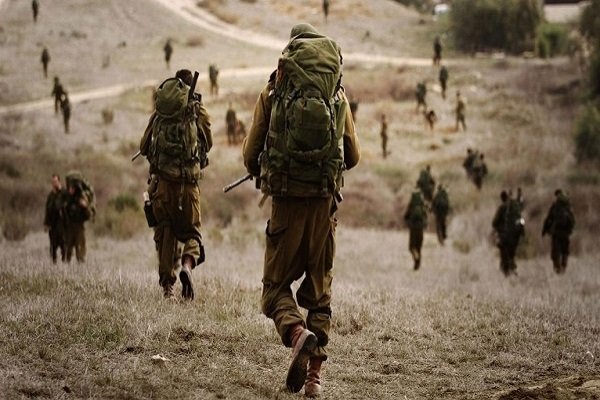Tel Aviv’ fears the future; what Zionists are concerned most about

TEHRAN - These days, Israeli officials are not feeling so hot, and are extremely concerned about the future, as it is quite evident in Tel Aviv's statements.
Recent developments in Syria are one of the challenges Israel faces, particularly following the U.S. President Donald Trump’s announcement to withdraw U.S. troops from Syria in the next four months. The news came as a shock to Israel.
Balancing power in Syria
The Zionist regime knows all too well that, in the wake of a series of victories and widespread gains by the Syrian resistance, the balance of power in Syria has changed in favor of Damascus.
The visits of the leaders of Arab states and their delegations to Syria, as well as the opening of some Arab and non-Arab embassies in Damascus, are among the new developments in that country. In this regard, Lebanese regional expert Hassan Hurdan said: “Zionists feel much worried about their future in the region because of the developments in Syria. Syrian developments have signaled this clear message to Israel that Bashar al-Assad is the ultimate victor.”
“The Arab countries that once turned the Arab League into a situation room for terrorist operations in Syria and to overthrow Assad, today are returning to Damascus one after the other, to acknowledge their failure. The Zionist regime understands this new development and are apprehensive about it,” he added.
The fear of repeating past bitter experiences
The resistance of the Iraqi government and nation had Washington to end Iraq’s occupation in 2011, without Israel’s approval. To Tel Aviv officials, history is repeating itself in Syria. Their concern intensifies as they simultaneously face many other security challenges and crises, including the Palestinian issue, the Great March of Return rallies, resistance operations and increased military and defense strength of resistance groups such as Hamas and Islamic jihad movements.
The resistance movement boosts defense, military strength
Israelis are also worried about their future position in the region as the military and defense power of the resistance axis increases. The Zionist authorities know well that the Syrian resistance has learned various types of combat skills in different conditions over the past eight years, and the skills can help Syrians overcome any battle.
Currently, Syrian resistance forces are well-versed in various classical, urban and erosional wars, and have advanced military weapons to reach their military objectives. Damascus's acquisition of the S-300's defense system has also doubled its defense capability.
In addition to Damascus, Lebanon's Hezbollah has gained much military and defensive power over the last few years, an issue that even the Zionist authorities and senior commanders have pointed out repeatedly on various occasions. For example, Israeli commanders have repeatedly said that Hezbollah has more than 100,000 advanced missiles that can be used any time. Earlier, the Israel's Minister of Energy, Yuval Steinitz reaffirmed, “Hezbollah missiles may target the entire Israel.”
Inability to enter the war
In Palestine, the situation is the same, and the Zionists are not able to confront the resistance groups and their missiles; however, the way the Palestinian groups responded to the latest Zionist operations against Gaza shocked Tel Aviv authorities. In any case, now the Zionists themselves admit their weaknesses against the resistance. A prominent official with the Israeli Ministry of Defense acknowledged that the regime's military is not ready at all to conduct military operations in the next wars.
This Israeli official, who requested to remain anonymous, said that Israel's ground forces were ready to fight at the lowest possible level over the past years, and the Zionist community must know that in the event of a war, the regime will pay a very high price. He pointed out that Former IDF chief of staff Benny Gantz was incapable of restoring the military's ability following their defeat in the 2006 Lebanon War.
The spirit of warfare is gone
The Russian alliance with the Damascus government is also seen as a threat to Israel in the region, especially after Washington decided to withdraw troops from Syria. Tel Aviv is well aware that Russia’s ongoing legal presence in Syria has led to the weakening of the United States in Damascus and even the region, which could have very dangerous consequences for it.
Political analyst Hassan Hurdan said, “Russia's alliance with the axis of resistance on the one hand, and the hike of Iran’s regional power and its allies on the other hand, have raised Israel’s security and intelligence services’ concern, because they feel that the Zionist army is no longer capable of much achievements in the war… Today, contrary to public belief, the Zionist regime is under the siege of the resistance forces and its military power is crippled. Today, the Zionists have neither the spirit to fight nor the spirit to win.”
Leave a Comment